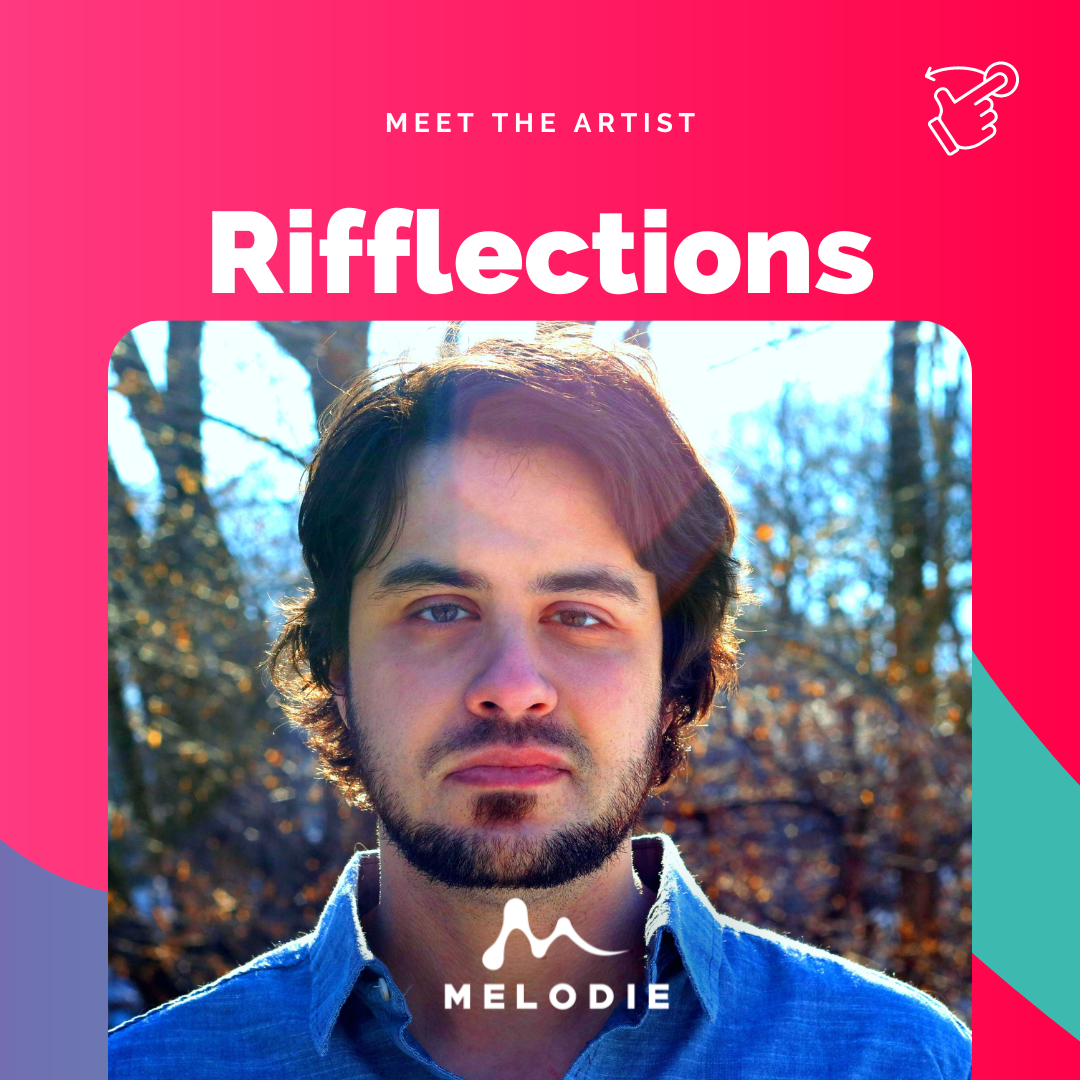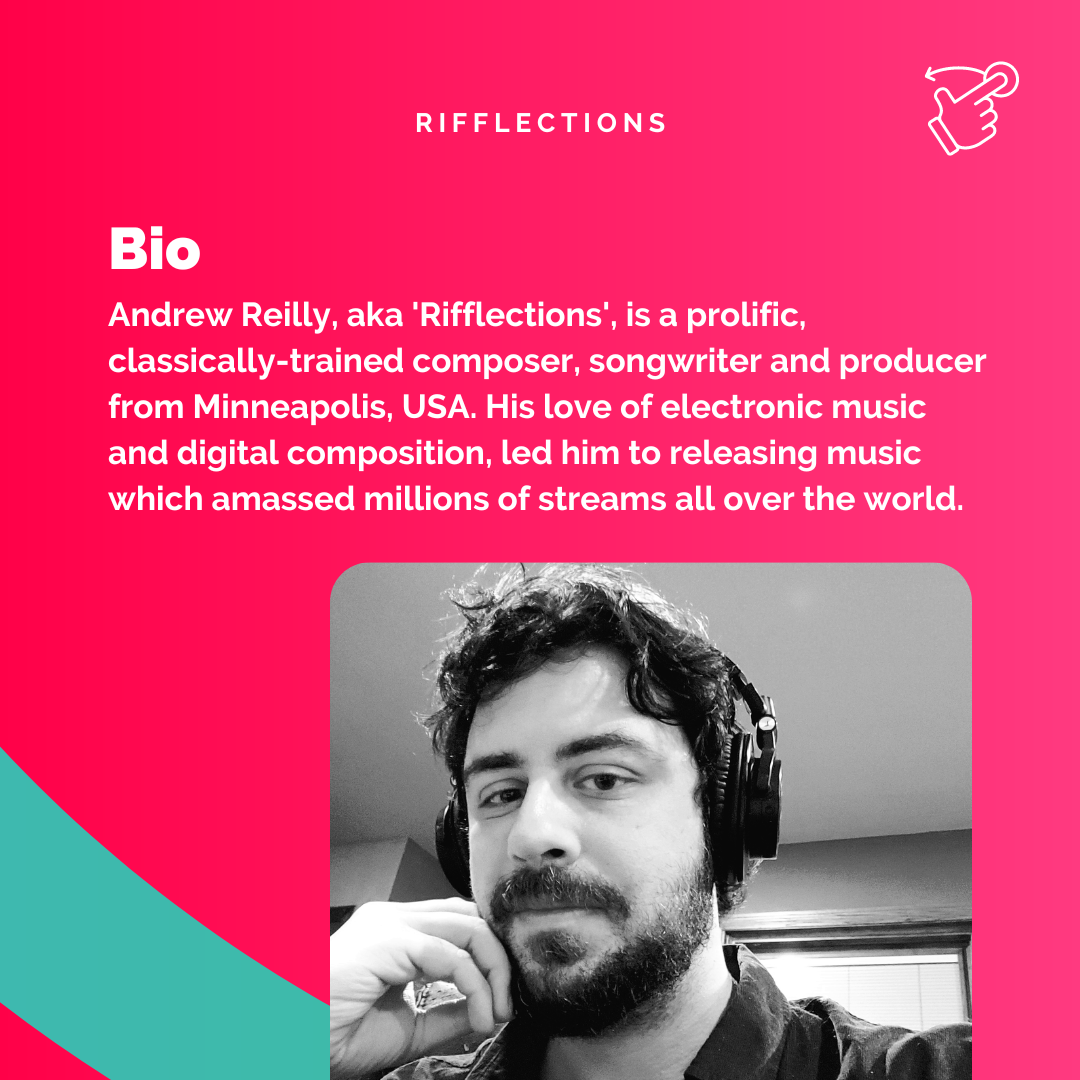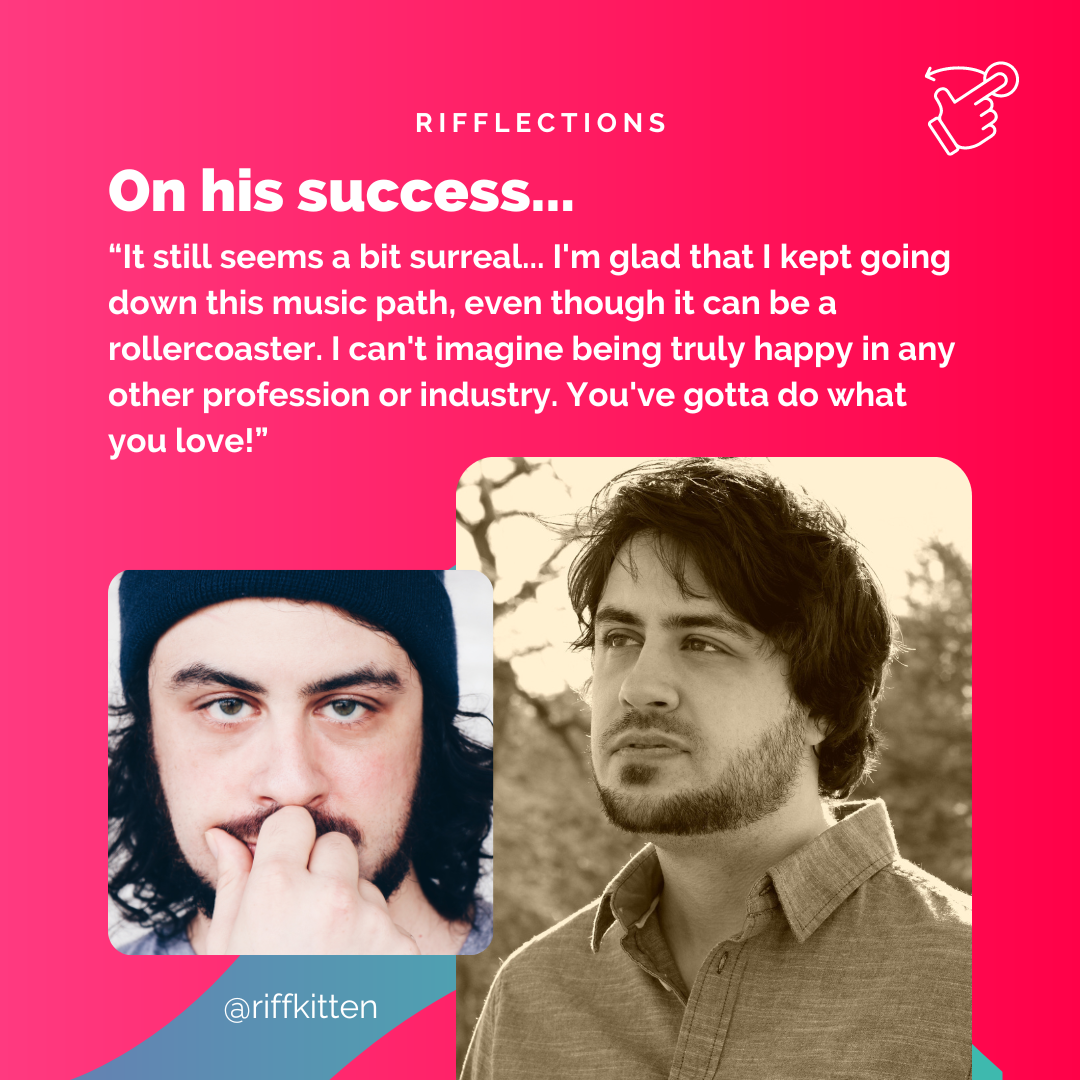
01 May Meet The Artist: Rifflections
Andrew Reilly, aka ‘Rifflections’, is a prolific, classically-trained composer, songwriter and producer from Minneapolis, USA.
We sat down to welcome him to Melodie, and discuss the drive behind his latest foray into the realm of producing screen music.
The Interview
Melodie: Hey Andrew, it’s great to welcome you to Melodie!
Let’s go back to your roots. How young were you when you first realised you were drawn to this music thing?
My pathway into music was maybe a bit unusual. I wasn’t born into a ‘musical’ family or anything like that. When I was a young kid, probably seven or eight, I overheard some classical piano pieces and was fascinated. I begged my parents for piano lessons, and they happily obliged. Soon after starting the lessons though, I lost interest in practicing and learning technique. I found myself wanting to create my own compositions and do my own thing.
For a while I stopped taking lessons, but discovered new ways to create music. I started messing around with a computer program called Multimedia Fusion that allowed me to program my own video games. And of course, every game needs a good soundtrack, so I downloaded a free MIDI sequencer and made my own music using stock General MIDI sounds! Technically, I had no idea what I was doing at the time, but it was so much fun and the experience stuck with me.
You graduated with a Bachelor’s in Music Theory and Composition from the University of Minnesota, and then quickly fell in love with electronic music. What was it about it that pulled you in?
I have a DJ friend who back in college would throw a lot of parties – he knew all of the subgenres within EDM, and I was struck by the huge variety of amazing tones and textures that could be produced electronically. I owned Cubase at the time, but mainly used it for orchestral mock-ups for classical and dramatic purposes.
After hearing some of the top EDM producers during the golden age of Electro House, I realized that the creative possibilities were endless for the solo producer – with Cubase, I had an entire world of musical possibilities at my fingertips. With that, I started having new inspiration to come up with my own epic tracks and songs. It was (and still is) musically liberating to have the tools available to be able to transform my mental concepts into completed songs, with little more than an idea, DAW, and a few plugins.
When did you get into digital composition and producing songs?
I actually only started making lyric-songs about five years ago. For many years, I told myself that I’m not a natural lyricist and only wrote instrumentals. Eventually, that attitude changed when I focused only on expressing myself rather than writing ‘good enough’ lyrics. After some practice, I started to really enjoy the process and savor the added musical dimension that lyrics can add to a composition.
You’ve released songs that have amassed millions of streams across the world. Tell us a bit about that journey.
It has been a journey! For years, I struggled to find an effective outlet for my music to be heard. It was frustrating and even depressing, and I wondered if I’d ever find an audience for the music I was creating. Shortly after starting my ‘Riff Kitten’ artist project, I had a bit of good fortune after the founder of an independent music label called Freshly Squeezed Music, heard one of my tunes on a playlist. He encouraged me to develop my personal musical voice and started releasing some of my songs.
In turn, I started gaining a lot of exposure and getting on Spotify editorial playlists. It still seems a bit surreal to have amassed several million streams. I’m glad that I kept going down this music path, even though it can be a rollercoaster. I can’t imagine being truly happy in any other profession or industry. You’ve gotta do what you love!
You took your skills to the next level when you combined your electronic production talents with an innate ability to capture emotion. How do you get in the zone when producing music for this purpose?
I’ll preface my response by saying that studying music theory has really helped me with this. The reason is because once you develop your theoretical and music listening skills, you start to identify the techniques that great composers use to capture certain emotions. For example, certain minor chord progressions played on piano with a slow harmonic tempo and sparse melody will inevitably ‘sound’ sad. I’ll try to take note of some of those elements, absorb what I can, and then find my own way to express the desired emotion musically.
How important is celebrating your individuality and uniqueness when it comes to creative output?
To me, it’s very important. When I first started out, I modelled a lot of my tracks after my musical heroes. I think it’s only natural, but after some time, I realized that I have my own ideas that I want to express in my own way. It’s not so much that I had to ‘search’ for my own musical voice, it just kind of happens when you make music that’s authentic. It took me some time to learn how to write authentic music.
I hear incredible artists all the time who write music that inspires me, so I’ll sometimes try to take note of what they’re doing and then put it out of my head. Maybe later on that technique or vibe that they created will surface in my mind and I’ll be able to express it in a unique, individual way. Mostly, I try not to think too hard and just write the music that I genuinely want to write. It sounds simple, but takes some insight within the process.
What is your DAW of choice? Any plug-ins or equipment that are your go-to?
For the past fifteen years or so, I’ve used Cubase. I think it’s incredibly versatile, which is essential to me because I produce many different kinds of music, from Electro Swing to Orchestral, to Ambient and Chill. As far as plugins are concerned, I use Xfer Serum in some way on just about every track I make. It’s a fantastic synth, with limitless sound-sculpting possibilities for almost any genre. For mixing, I use many instances of Oeksound Soothe in my compositions – it’s so useful for taming annoying resonances and balancing things out.
What is your favourite track in the Melodie library and why?
It’s a tough one, but I’d have to say ‘Tribes of Wrath’. I still remember the process of working on that track – I had a lot of fun blending tribal elements with a modern beat. I tested the mix in the car before sending it to Melodie and felt true happiness as I drove to the grocery store. It sounded bangin’ and it was simply just a blast to work on.
What’s next for Rifflections?
While the Rifflections project is pretty new, I have many ideas swimming around in my head! I’m working on a debut album to feature a variety of Downtempo, Chill and Ambient vibes, and will soon be launching a channel to feature new compositions weekly. I will, of course, be working on more cinematic and programmatic tracks to hopefully be featured in the Melodie library!





